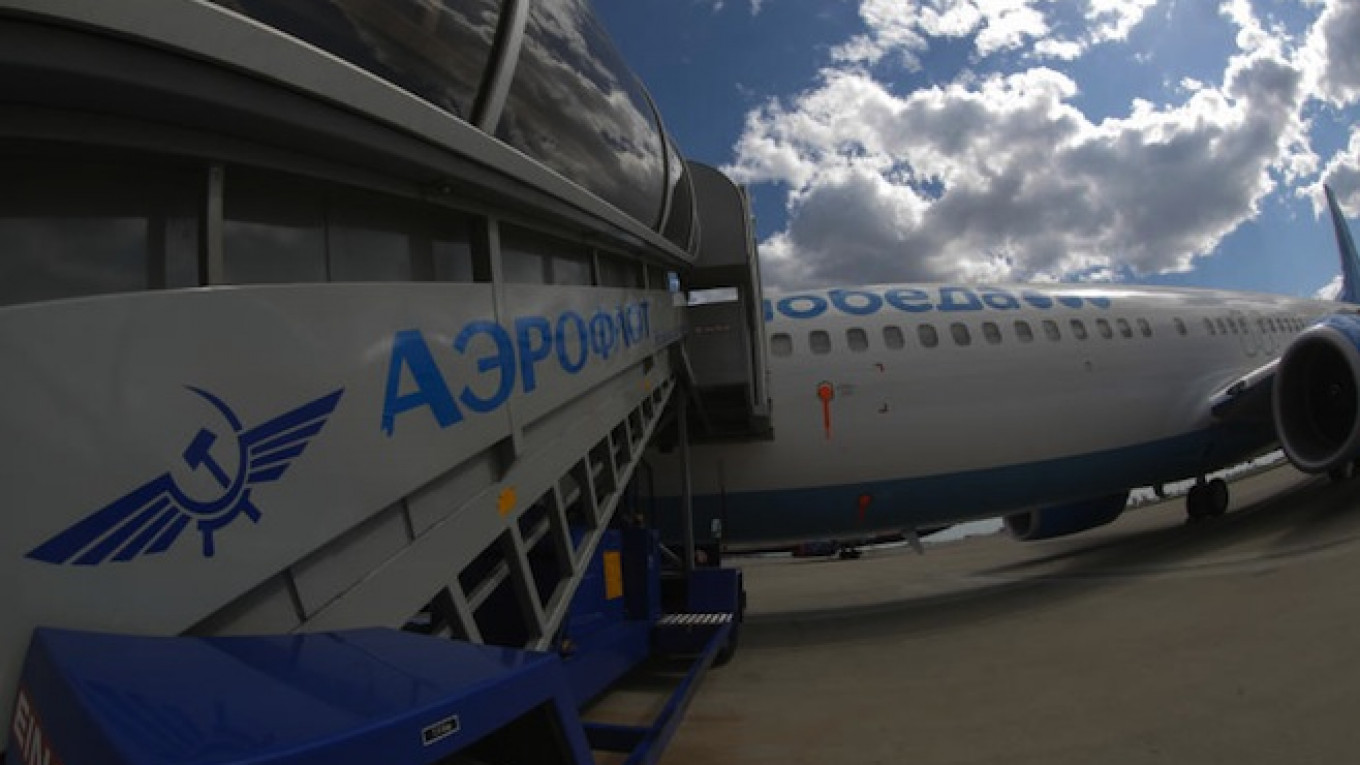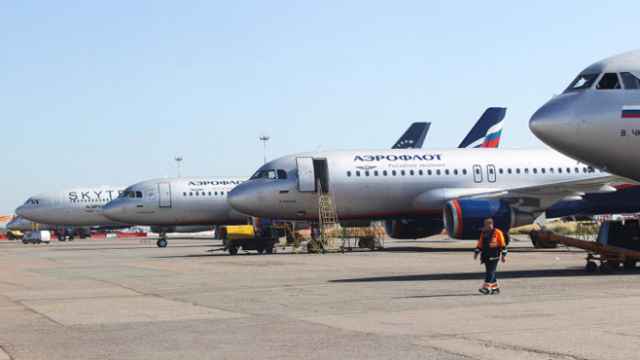Russia's Aeroflot sees the Russian aviation industry crisis deepening and is renegotiating its jet order with U.S. planemaker Boeing as the carrier seeks to reduce its fleet, Chief Executive Vitaly Savelyev said on Friday.
Aeroflot signed a contract for 22 Boeing 787 Dreamliners in 2007 with delivery scheduled for 2014, but the American manufacturer later pushed the supply date to 2016.
"In today's falling market we have well-founded reasons to cancel the contract," Savelyev told Reuters. "We don't see a market where it is possible to use this aircraft. We haven't yet seen the worst of this crisis."
Russia's flagging economy, battling against Western sanctions of the Ukraine crisis and a collapse in global oil prices, has hit airlines hard and unprofitable domestic traffic has grown at the expense of lucrative international flights as consumers reign in spending.
Savelyev said Aeroflot was in the final stages of negotiations with Boeing and the two companies were discussing all options, including canceling the contract.
Unpredictable Market
The Russian aviation industry lost around 30 billion rubles ($553.51 million) last year, according to the Russian Association of Air Transport Operators, compared with a 4.7 billion ruble loss in 2013.
Aeroflot has increased passenger numbers by more than 15 percent in the last five months, but the total number of passengers for Russian airlines has fallen by 3 percent in the same period, Savelyev said.
"The global market is on the rise but in Russia, because of the recession, many passengers are refusing to fly," he said.
Faced with the expense of maintaining a large number of aircraft, Aeroflot and other airlines are increasingly looking to reduce fleet size as the market demand falls.
Savelyev said Aeroflot was planning to trade out its older aircraft and the Dreamliner contract with Boeing was not the only supply deal being renegotiated. The airline said on Thursday it had started preparations to sell more that 40 of the 161 aircraft it currently operates.
"We are speaking with all our suppliers ... to some how postpone delivery," Savelyev said. "The market is unpredictable. No one knows what will happen next."
A Message from The Moscow Times:
Dear readers,
We are facing unprecedented challenges. Russia's Prosecutor General's Office has designated The Moscow Times as an "undesirable" organization, criminalizing our work and putting our staff at risk of prosecution. This follows our earlier unjust labeling as a "foreign agent."
These actions are direct attempts to silence independent journalism in Russia. The authorities claim our work "discredits the decisions of the Russian leadership." We see things differently: we strive to provide accurate, unbiased reporting on Russia.
We, the journalists of The Moscow Times, refuse to be silenced. But to continue our work, we need your help.
Your support, no matter how small, makes a world of difference. If you can, please support us monthly starting from just $2. It's quick to set up, and every contribution makes a significant impact.
By supporting The Moscow Times, you're defending open, independent journalism in the face of repression. Thank you for standing with us.
Remind me later.






